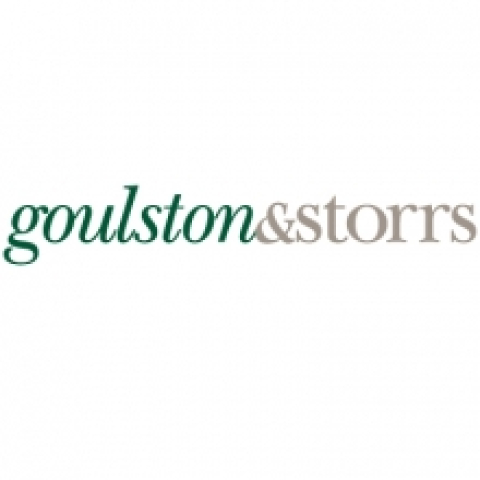NYC Legislation Limits Enforcement of Personal Liability Provisions and Prohibits Harassment for Certain Commercial Tenants
On May 26, 2020, the New York City Council passed two laws, effective immediately, intended to provide relief to certain commercial tenants during the COVID-19 pandemic. These laws supplement federal relief bills and the executive orders that have been issued by Governor Cuomo, and purport to limit the recourse available to landlords against certain guarantors of leases. This advisory summarizes these laws, their implications, and their potential vulnerability to legal challenge.
1. Prohibition on Enforcement of Personal Liability Provisions in Certain Commercial Leases
Int. 1932-A prohibits landlords under certain commercial leases from enforcing personal liability provisions in their leases or rental agreements against guarantors who are “natural persons,” provided that the default or other event triggering the personal liability provision occurred between March 7, 2020 and September 30, 2020, and that the tenant was impacted by the stay at home orders implemented by the Governor’s office in one of the following ways:
- the tenant was required to cease serving food or beverages for on-premises consumption or to cease operation under Executive Order 202.3 issued by the Governor on March 16, 2020;
- the tenant was a non-essential retail establishment subject to in-person limitations under guidance issued by the New York State Department of Economic Development pursuant to Executive Order 202.6 issued by the Governor on March 18, 2020; or
- the tenant was required to close to members of the public under Executive Order 202.7 issued by the Governor on March 19, 2020 (i.e. barbershops, hair salons, tattoo or piercing parlors, nail technicians, cosmetologists, estheticians and the provision of electrolysis, laser hair removal services and related personal care services).
Int. 1932-A’s definition of “personal liability provision” puts into question whether it applies to standalone guaranty agreements, separate and apart from the operative lease or rental agreement, as is common in commercial leases. Additionally, the absence of a definition of “natural person” raises the question of whether a guaranty made by a limited liability company, corporation or other entity, as is also quite common, would be enforceable under this law.
This law also makes any attempt to enforce a personal liability provision that the landlord knows or reasonably should know is not enforceable, pursuant to the above, commercial tenant harassment that is prohibited under Subdivision a of section 22-902 of the administrative code of the City of New York, as discussed in Item II below. Violations of this Subdivision expose landlords to civil penalties and judicial relief in the form of injunctions, compensatory and punitive damages, and attorney’s fees.
2. Prohibition on Landlord Harassment of Certain Tenants Impacted by COVID-19
Int. 1914-A prohibits a landlord from threatening its commercial tenant based on such “commercial tenant’s status as a person or business impacted by COVID-19, or the commercial tenant’s receipt of a rent concession or forbearance for any rent owed during the COVID-19 period,” which is currently March 7, 2020 through September 30, 2020.[1] This law defines the persons and businesses “impacted by COVID-19” covered by its provisions, but does not elaborate on the types of “rent concession or forbearance for any rent owed during the COVID-19 period” that would apply.
Remedies available to a covered tenant that proves such harassment under the legislation would include, among other things, injunctive relief, compensatory and punitive damages, and an award of attorneys’ fees.
3. Under City Council Consideration: Extending moratorium on evictions until April 2021
The New York City Council is considering another bill, Int. No. 1912, that would extend the state eviction moratorium to April 1, 2021 for certain tenants impacted by COVID-19 unless certain defined exceptions can be established. We will provide further updates on this legislation and other relevant pieces of legislation as they are enacted.
4. Potential Challenges
Article I of the U.S. Constitution prohibits states from interfering with private contracts. The clause states that “No State shall … pass any … Law impairing the Obligation of Contracts.” While the Contract Clause is not an absolute ban on state regulation that affects contracts, and while the U.S. Supreme Court has recognized that the “economic interests of the state may justify the exercise of its continuing and dominant protective power notwithstanding interference with contracts,” the Contract Clause does impose limits on the state’s police power, and whether Int. 1932-A goes beyond those limits is an issue. The impact of Int. 1932-A on “Good Guy Guarantees,” which will typically allow guarantors out of guarantees after some defined period of non-default, also remains an issue.
Prohibitions on “commercial tenant harassment” also raise First Amendment free speech issues. Int. 1932-A defines harassment as “any act or omission by or on behalf of a landlord that (i) would reasonably cause a commercial tenant to vacate covered property, or to surrender or waive any rights under a lease or other rental agreement or under applicable law in relation to such covered property.” The breadth of this definition, whether intentionally or not, may include commercial speech and how that speech is handled under these laws will be worth keeping an eye on.
We will follow these high-stakes laws as they are enforced and likely challenged.
Do you want more information?
 Derek Domian
Derek DomianBusiness disputes, professional malpractice and disciplinary matters, and land use, title, condominium, and other complex real estate disputes are the core of Derek Domian's civil litigation practice. As Counsel in the firm's Litigation group, Derek regularly representing clients in state and federal courts, as well as before arbitrators and mediators.

